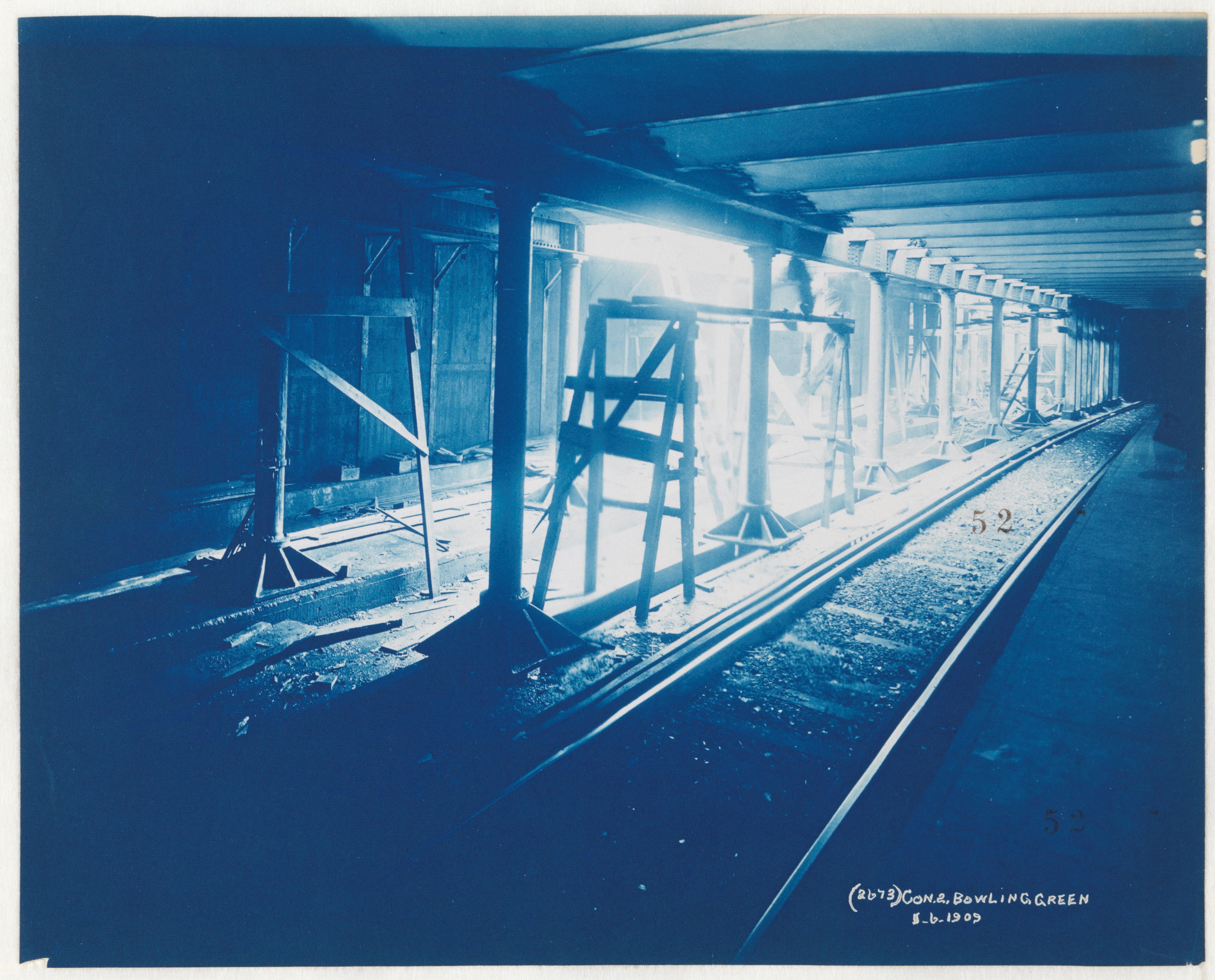Unintentionals

Grant W. Pullis (attributed to):
Construction of the New York Subway (1908)
"Might just as well embrace the inevitable."
©2022 by David A. Schmaltz - all rights reserved
My early mentors cautioned me about unintended consequences, apparently inescapable side effects of every significant effort. Setting out to change any world will very likely set into motion forces which will certainly change something else, too, and those side effect changes might well become the effort's legacy, like that county sheriff in coastal Oregon who decided to rid the beach of that rotting whale carcass with a little dynamite. He managed to cover a sizable crowd present to witness the transformation, including news cameras from Portland, with a thick patina of rotted blubber. This one act became the entirety of his legacy, thanks to a single unintended consequence.
Other Unintentionals seem possible, though, positive ones. These might well be more common if less memorable. It might well be that mostly, things work well more due to the unrequested intervention of Unintentionals than to clever forethought. I often find myself feeling lucky, feelings resonant of some visiting Unintentional. These experiences produce no problem, no hassle, and quickly fade into forgotten foreground. Other Unintentionals seem less trivial, though. I might propose that the most significant transitions I've experienced in my life were each heavily influenced by Unintentionals. My work, my life, my loves might all be most properly classified as the result of happy accidents and not intentional planning.
As a long-standing planning professional, I firmly believe that the planners generally take themselves altogether too seriously. I empathize with their feelings. What might it mean if an outcome had not depended upon the quality of its guiding plan? It might mean that things just happen, without the beneficent influence of careful thought. It might disqualify the whole profession, so us planners tend to at least try to be comprehensive, sometimes bordering on the obsessive/compulsive. Then, of course, unintended consequences intrude, often for the better. Unanticipated conditions emerge and Unintentionals manifest to deal with the difference. All's right with the world, even though not all's right with the plan. All's never right with any plan, though that's a galling insight for every planning professional.
I'm learning to depend upon these Unintentionals. I met The Muse and The Muse met me, an encounter that was not on any score. We were fortunate to recognize that we made fine music together because we were not in that moment really in the market for any fresh relationship. Our fate blindsided us and we managed somehow to blink ourselves awake out of our former stupor and the rest is history still in the making, all Unintentional. Those years I spent working at The Insurance Company resulted from me deciding to engage in a "practice interview" with "a company I'd never agree to work for" so that I might gain skill at being interviewed. By the end of that hour, I'd been hired and the foundation of my professional life had been laid, all Unintentional.
It might be that we are each the beneficiaries of unintended consequences, and that our inborn and heavily reinforced fear of those Unintentionals serves each of us poorly. Some religions hold the principle of falling into the mystery, open to unexpected outcomes, that this amounts to living in grace, with grace. I appreciate this perspective, for I seem fully capable of stifling my own potential by attempting to avoid inevitable Unintentionals. It might be a universal law, inescapable, that one must produce at least ten percent unintended consequences with every intentional intervention. I might think of these as the free bonus portion of the equation. I might be best served by remaining open to the benefits these might bring and welcome the changes I cannot avoid. Might just as well embrace the inevitable.


